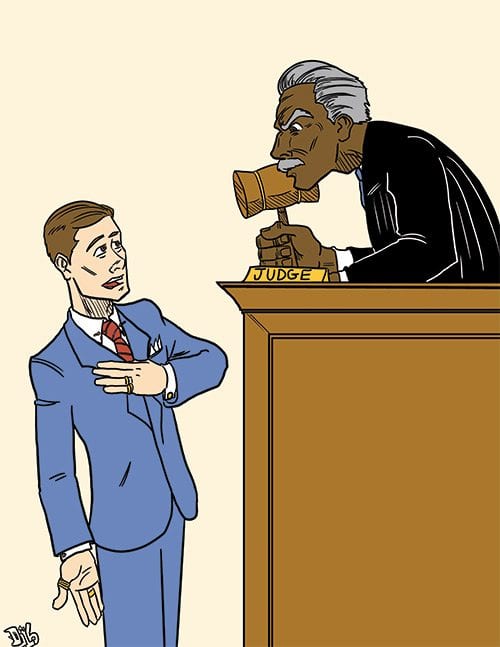
Americans do not readily accept the idea that a corporation is a person. A corporation does not breathe and eat and think like a human being, but over the years, U.S. courts have attributed more human rights and qualities to corporations. This legal device suits the wealthy who own the capital stock of corporations, but progressives have begun to challenge the concept.
In the beginning, one of the reasons for incorporation was to facilitate commerce. At the time of the industrial revolution, business titans had to put all of their assets at risk. This liability also made it difficult to raise capital. Establishing a business enterprise as a corporation solved several problems. First of all, only the assets of the business would be at risk and not the personal wealth of the principals. Secondly, the issuance of shares of stock could easily determine the ownership interests of the principals.
As time went by, the courts gave corporations more rights, including some of the 14th Amendment protections formerly available only to living and breathing human beings. Court cases arose regarding the proper jurisdiction for corporations and the improper seizure by the government of corporate property.
Two recent cases have extended the anthropomorphization of the corporation to levels that many Americans consider to be excessive. In Citizens United v. FEC, the U.S. Supreme Court held that corporations have the same constitutional right as human beings to exercise free speech and contribute to political campaigns.
In Burwell v. Hobby Lobby, the U.S. Supreme Court even extended a corporation’s First Amendment rights. The court held that corporations could act on the religious opposition of its owners and refuse to provide contraception coverage to their employees as required by the Affordable Care Act.
While all of these attributes of the corporation as created by the courts seem to be excessive to many people, there is one characterization that is patently unjust. In the financial and business world, corporations are found to be in violation of regulations or even guilty of criminal activity. But a corporation is a legal fiction, incapable of doing anything. Only its shareholders or employees can carry on its business affairs. Nonetheless, the perpetrators are not found to be employees of the offending corporation but rather the corporation itself is guilty.
The penalty for such offenses is usually a fine. The fines are not trivial. According to a CNBC report a year ago, banks and financial institutions paid more than $150 billion in penalties, fines and settlements in 2015. The charges include fraud, money laundering, tax evasion and corrupt mortgage investment. Yet, with violations of this magnitude, not one bank CEO has been made to do the perp walk, in handcuffs, out of the executive suite. Not one has been branded as a felon.
Not only are the offending executives not criminally charged, they earn lavish salaries for their services to the bank. And the multimillion dollar fines are paid from funds that should go to pay dividends to investors. It is good to remember that all of those who own stock are not fabulously wealthy. Many working people save their money in investment funds to provide for their retirement.
The wealthy can use the corporate shield to protect them from personal liability for criminal conduct. However, the less affluent can have their opportunities destroyed because of criminal records for petty offenses. America has to remedy its discriminatory criminal justice system.
A first step is to limit the legal concept of the corporation. The nation’s focus should be on the rights and welfare of real human beings.






